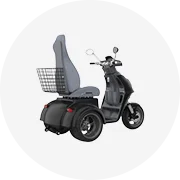

Low speed Electric Cargo Pickup Truck,Double Cabin Left Rudder, Suitable for All Kinds of Pickups with Complex Road Condition

Wuling ronguang new truck 2 seater pickup e vehicle new vehicles china 4x4 cargo trucks Ronguang new truck



















The phrase single cabin pickup denotes a light-duty truck with a solitary seating row and an open cargo space at the rear. Its utilitarian design is appreciated for striking a balance between accommodating passengers and hauling cargo. The single cabin truck is a multipurpose conveyance, widely employed in diverse sectors for the transport of goods, machinery, and staff.
Among single cabin pickups, an array of models exists, each with distinct features tailored to specific needs. The Toyota Hilux pickup single cabin is lauded for its dependability and prowess in off-road conditions, whereas the Mitsubishi L200 pick up single cabin is noted for its fuel economy and comfort. Other models, such as the Tata Xenon single cabin and the Mahindra pickup single cabin, are known for their cost-effectiveness and suitability for strenuous tasks. These variants vary in engine size, payload capacity, and cabin comforts, offering businesses a spectrum of choices to meet their particular demands.
The single cabin truck boasts a simple yet sturdy architecture. Its chassis serves as the backbone, bearing the vehicle's load and enduring the rigors of cargo and road conditions. The cabin is crafted for the driver's comfort and safety, with ergonomic seats and controls. The cargo bed is fortified to accommodate diverse loads and cargo types. The synergy of components such as the suspension system, which may encompass Macpherson struts or double wishbone configurations, and the drivetrain, be it FWD or RWD, guarantees optimal performance across various operational contexts.
Materials selected for constructing a single cabin pickup prioritize endurance and functionality. The frame often employs high-strength steel for structural integrity, while body panels might utilize lighter substances like aluminum to diminish weight without compromising durability. The interior typically features resilient plastics and fabrics, capable of withstanding daily wear and tear. These material choices ensure the vehicle's longevity despite intensive use, while also maintaining a weight conducive to fuel efficiency.
Single cabin pickups are essential in industries that demand a dependable workhorse. In construction, they ferry materials to sites inaccessible to larger vehicles. In agriculture, they shuttle produce and equipment over uneven terrain. For service sectors, these trucks act as mobile workshops, laden with tools and parts. Each industry gains from the vehicle's ability to traverse diverse landscapes while transporting vital goods, thus contributing to business value and operational productivity.
The fundamental role of a single cabin truck is the conveyance of goods and machinery. Yet, its utility extends beyond mere haulage. Equipped with appropriate accessories, such as tow hitches or plows, it can undertake tasks like towing or snow clearance. The cabin's configuration also permits the installation of communication devices, converting the vehicle into a mobile command hub for field operations.
Notable attributes of single cabin pickups include their agility and the simplicity of customization. For instance, the Toyota single cabin pickup often features advanced safety systems and a reputation for endurance, while the Hilux Vigo single cab is recognized for its robust resale value and the extensive availability of aftermarket components. These distinguishing traits set them apart in a competitive marketplace, attracting buyers with particular needs and preferences.
Opting for a single cabin pickup yields numerous advantages. Its compact stature facilitates maneuvering in confined spaces, and the open cargo bed provides versatility in loading and unloading. The reduced ownership costs relative to larger vehicles, along with the potential for decreased fuel consumption, translate into economic benefits for businesses. Moreover, the design's simplicity often leads to reduced maintenance expenses and less downtime.
Effective utilization of a single cabin truck necessitates an understanding of its capabilities and constraints. Routine inspections of fluid levels, tire pressure, and braking systems are vital for secure operation. Adherence to the manufacturer's recommended service intervals is key to preserving the vehicle's longevity and dependability. Regular cleaning of both the interior and exterior not only upholds the vehicle's aesthetic but also wards off issues like corrosion and damage from accumulated grime.
Choosing the appropriate single cabin pickup entails evaluating the vehicle's intended application. Considerations such as engine performance, payload capacity, and fuel type should correspond with operational necessities. For businesses with a focus on sustainability, emission standards are an important factor. A comparison of models, like the Nissan pickup single cabin against the Tata Xenon single cabin price, can shed light on the most cost-effective investment.
The demographic for single cabin pickups spans from small enterprises to multinational firms. Each segment has unique requirements, from the affordability and ruggedness sought by emerging businesses to the dependability and extensive service networks needed by larger organizations. Grasping these preferences is vital for manufacturers and suppliers to address the varied demands of the market that Alibaba.com caters to.
Endurance in a single cabin pickup is assured by its robust build and the employment of premium materials. The design is concentrated on tolerating substantial loads and challenging work environments, guaranteeing a lasting and reliable performance. Regular upkeep and compliance with service timetables also contribute significantly to the vehicle's sustained durability.
The customization possibilities for a single cabin truck are extensive, enabling businesses to adapt the vehicle to their specific requisites. This may include fitting specialized storage compartments and toolboxes in the cargo space or adding advanced lighting systems for enhanced nocturnal visibility. Moreover, aesthetic modifications can be implemented to reflect company branding.
To select the ideal single cabin pickup for your enterprise, weigh factors such as the intended usage, load-bearing capacity, fuel economy, and the terrain it will navigate. Reviewing the vehicle's emission compliance is also crucial. Prospective buyers should juxtapose various models, such as the Toyota Hilux pickup single cabin or the Mitsubishi single cabin pickup, to identify one that aligns with their operational needs and budgetary limits.